Abstract
Antiserum was prepared against highly purified T4D bacteriophage-induced dihydrofolate reductase (DFR). This serum not only inactivated the enzyme but also inactivated all strains of T4D examined. T6 was inactivated to a lesser extent, and T2L, T2H, and T5 were unaffected by the antiserum. The phage-killing power of the serum could be blocked by prior incubation with partially purified T4D dfr obtained from host cells unable to make phage structural proteins. These observations confirm earlier results that the phage dfr is a structural component of the phage particle, and they offer new evidence on the manner in which this enzyme in incorporated into the tail structure.
Full text
PDF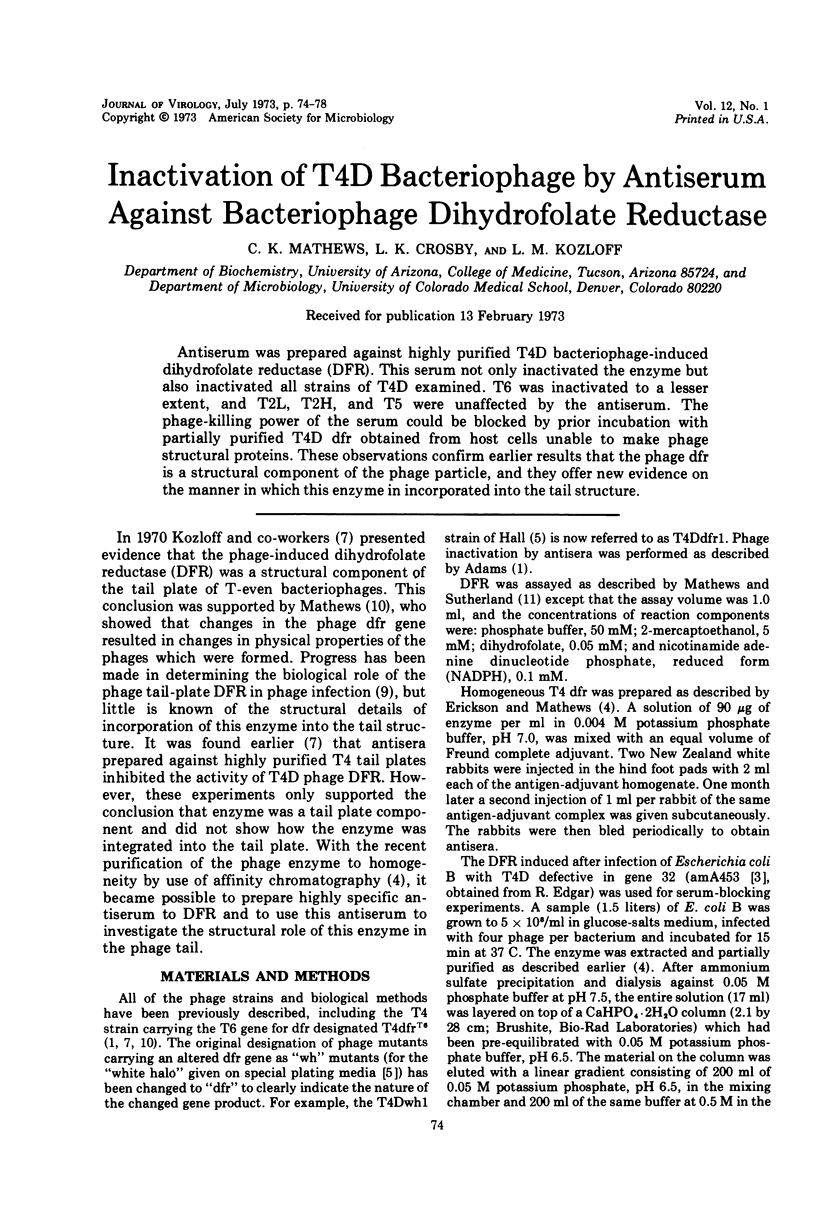
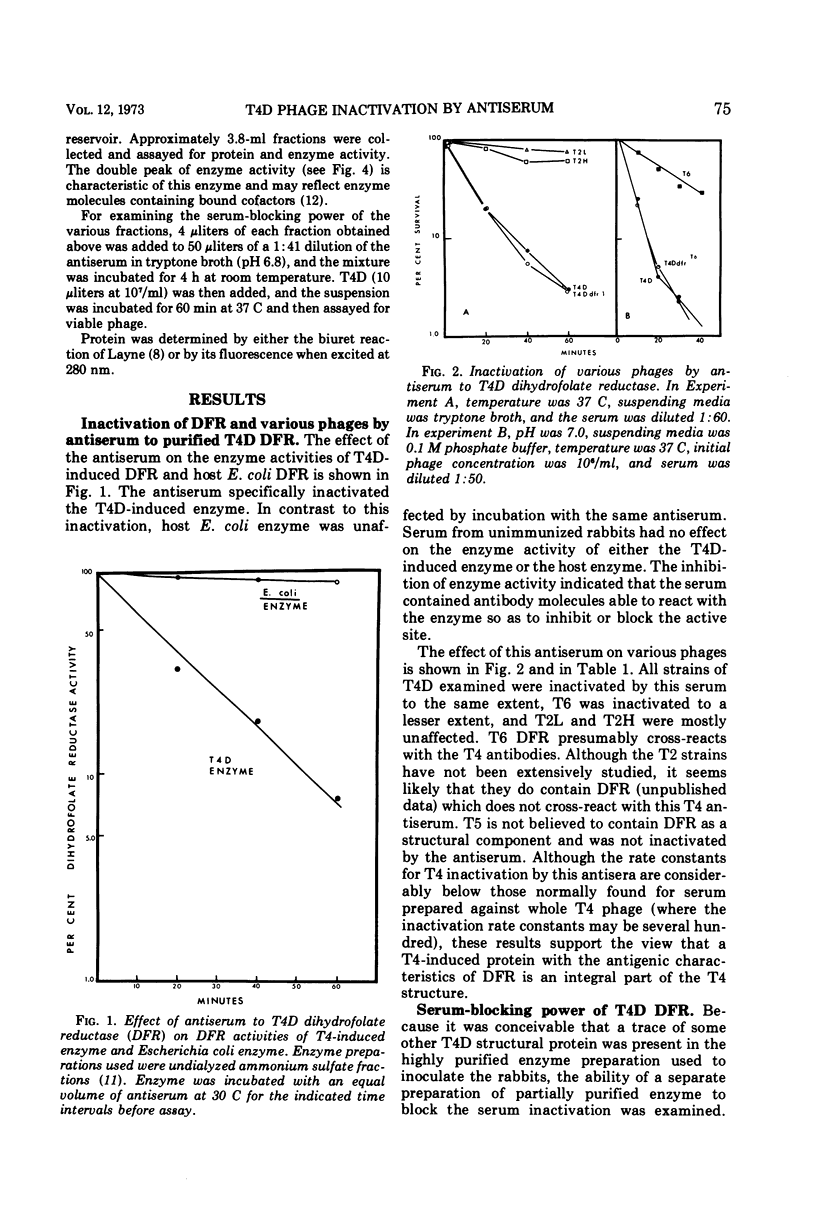
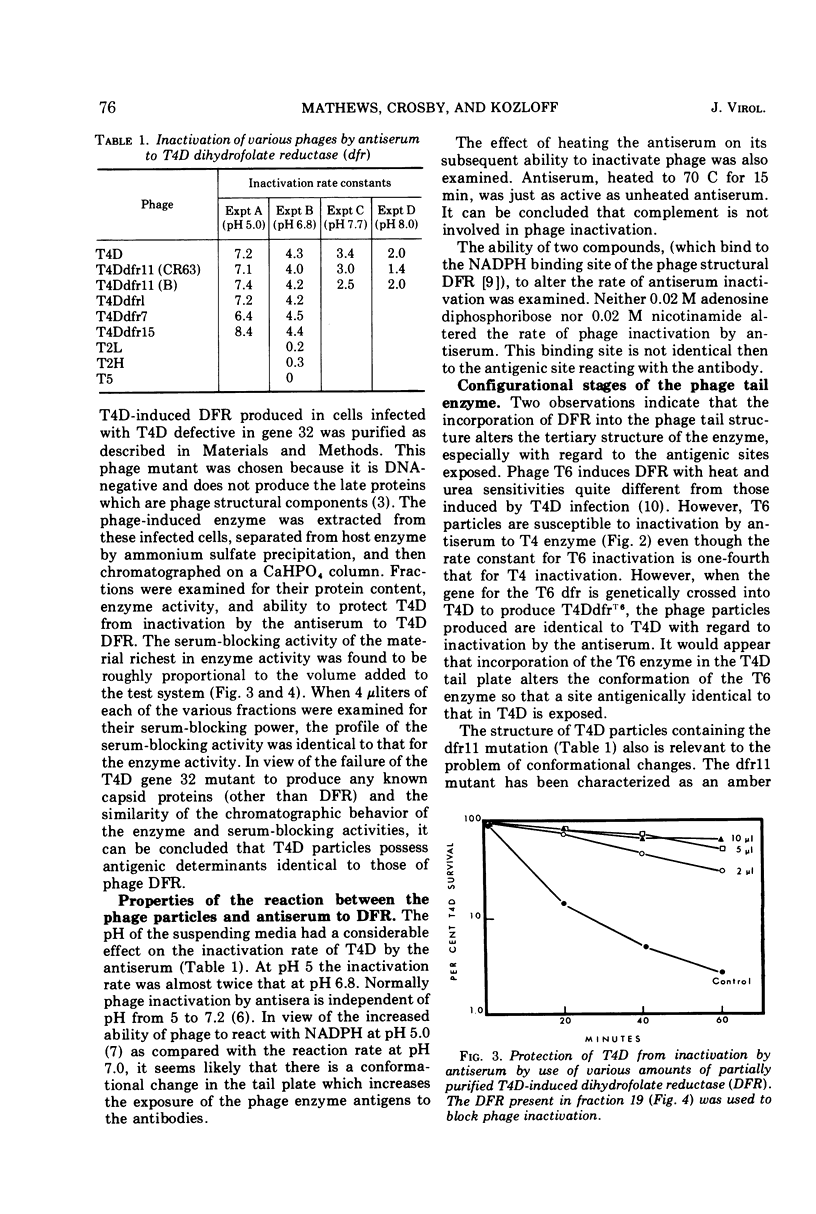
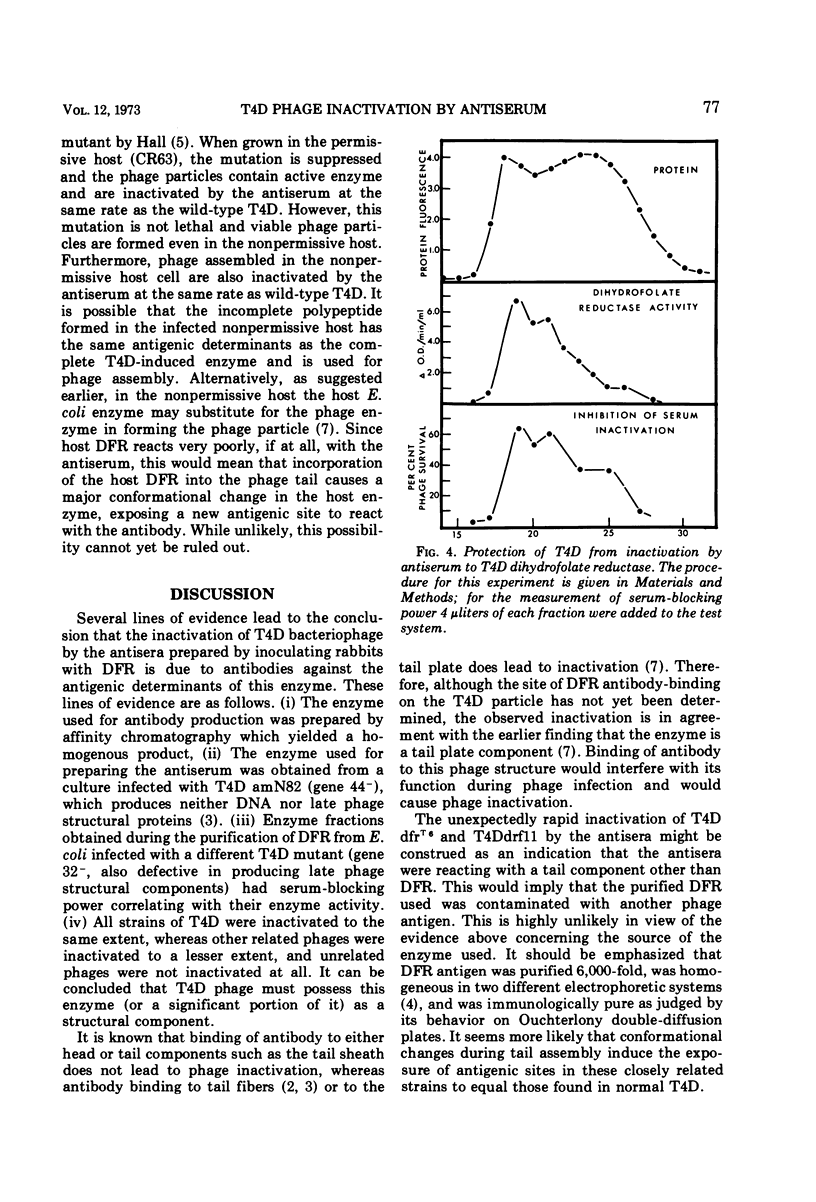
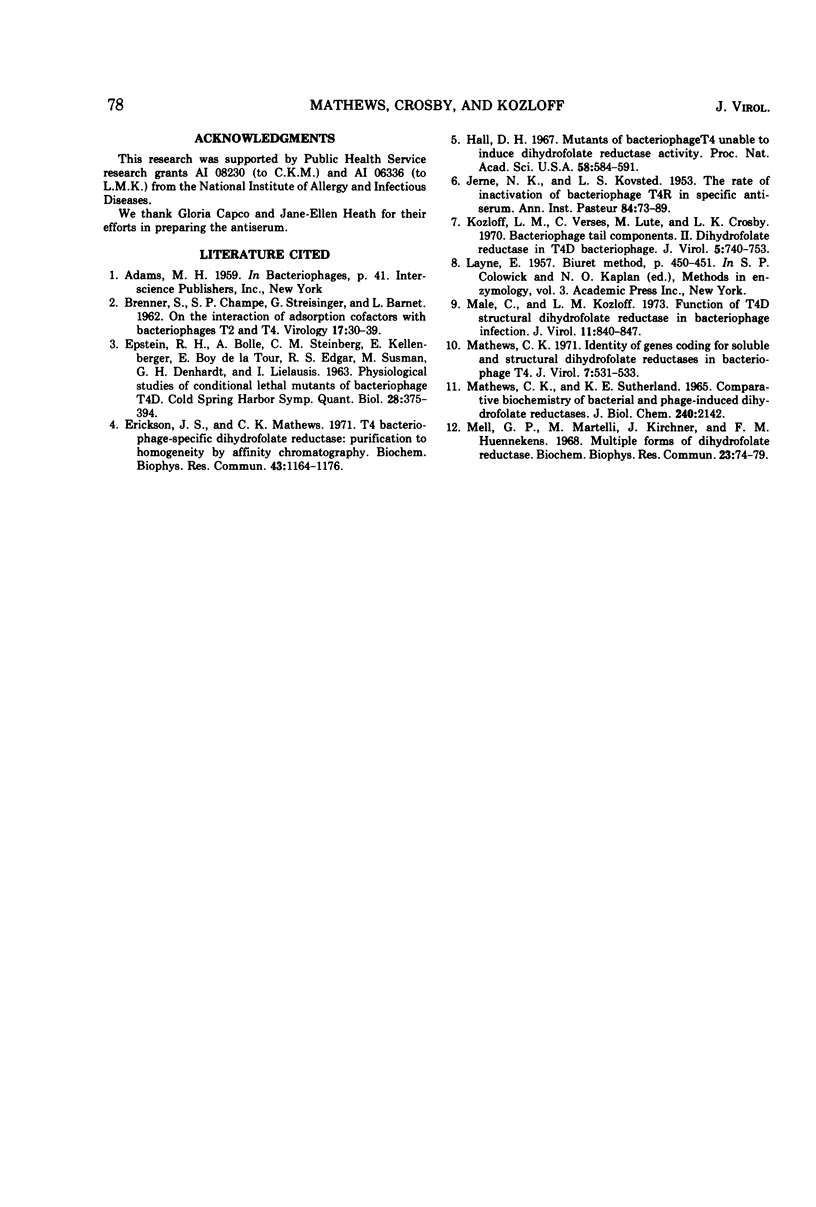
Selected References
These references are in PubMed. This may not be the complete list of references from this article.
- BRENNER S., CHAMPE S. P., STREISINGER G., BARNETT L. On the interaction of adsorption cofactors with bacteriophages T2 and T4. Virology. 1962 May;17:30–39. doi: 10.1016/0042-6822(62)90078-8. [DOI] [PubMed] [Google Scholar]
- Erickson J. S., Mathews C. K. T4 bacteriophage-specific dihydrofolate reductase: purification to homogeneity by affinity chromatography. Biochem Biophys Res Commun. 1971 Jun 4;43(5):1164–1170. doi: 10.1016/0006-291x(71)90585-7. [DOI] [PubMed] [Google Scholar]
- Hall D. H. Mutants of bacteriophage T4 unable to induce dihydrofolate reductase activity. Proc Natl Acad Sci U S A. 1967 Aug;58(2):584–591. doi: 10.1073/pnas.58.2.584. [DOI] [PMC free article] [PubMed] [Google Scholar]
- JERNE N. K., SKOVSTED L. The rate of inactivation of bacteriophage T4r in specific anti-serum. I. Salt effect. II. Cofactor. Ann Inst Pasteur (Paris) 1953 Jan;84(1):73–89. [PubMed] [Google Scholar]
- Kozloff L. M., Verses C., Lute M., Crosby L. K. Bacteriophage tail components. II. Dihydrofolate reductase in T4D bacteriophage. J Virol. 1970 Jun;5(6):740–753. doi: 10.1128/jvi.5.6.740-753.1970. [DOI] [PMC free article] [PubMed] [Google Scholar]
- MATHEWS C. K., SUTHERLAND K. E. COMPARATIVE BIOCHEMISTRY OF BACTERIAL AND PHAGE-INDUCED DIHYDROFOLATE REDUCTASES. J Biol Chem. 1965 May;240:2142–2147. [PubMed] [Google Scholar]
- Male C. J., Kozloff L. M. Function of T4D structural dihydrofolate reductase in bacteriophage infection. J Virol. 1973 Jun;11(6):840–847. doi: 10.1128/jvi.11.6.840-847.1973. [DOI] [PMC free article] [PubMed] [Google Scholar]
- Mathews C. K. Identity of genes coding for soluble and structural dihydrofolate reductases in bacteriophage T4. J Virol. 1971 Apr;7(4):531–533. doi: 10.1128/jvi.7.4.531-533.1971. [DOI] [PMC free article] [PubMed] [Google Scholar]
- Mell G. P., Martelli M., Kirchner J., Huennekens F. M. Multiple forms of dihydrofolate reductase. Biochem Biophys Res Commun. 1968 Oct 10;33(1):74–79. doi: 10.1016/0006-291x(68)90257-x. [DOI] [PubMed] [Google Scholar]


